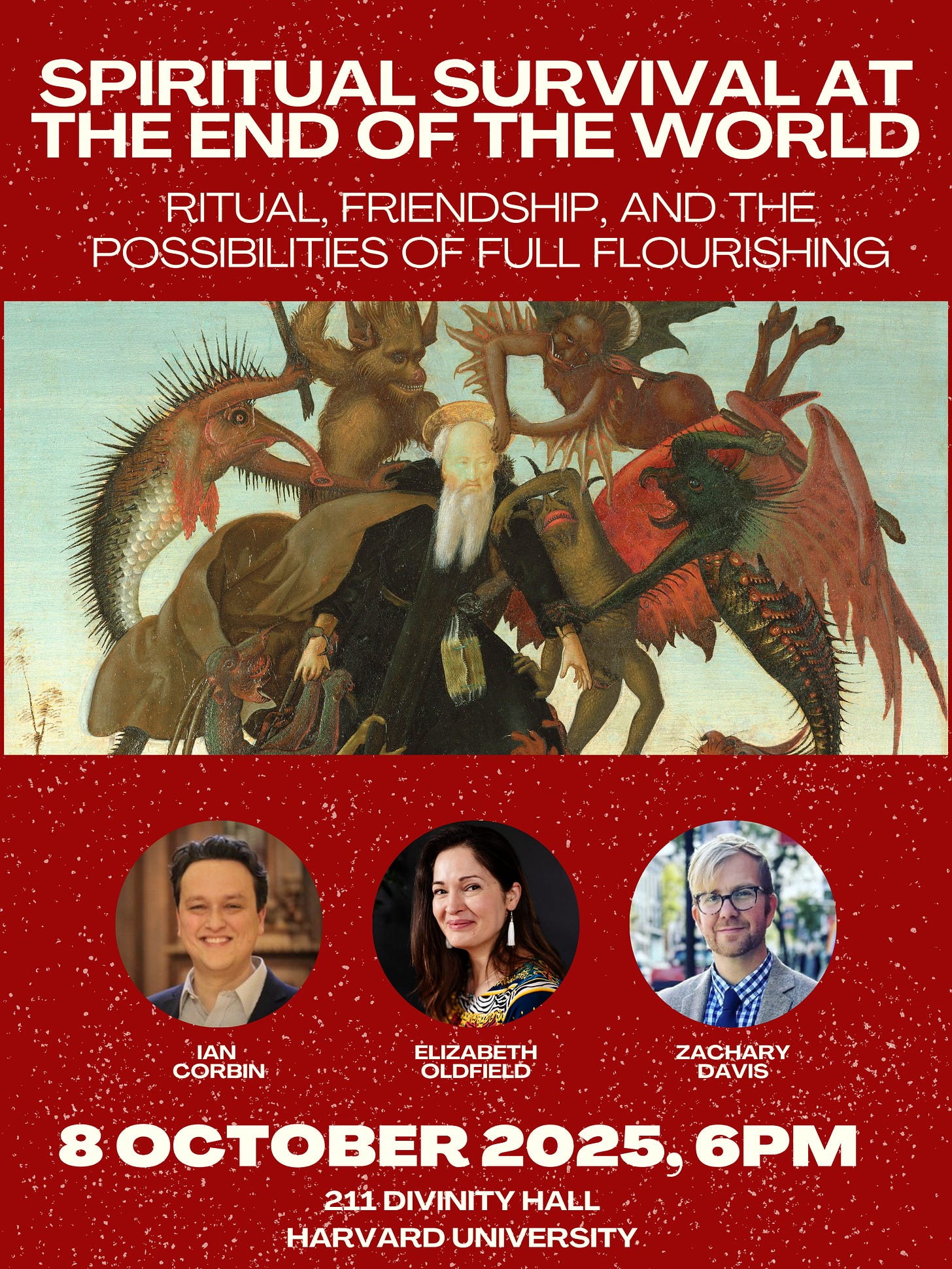Spiritual Survival at the End of the World
Ritual, Friendship, and the Possibilities of Full Flourishing
Powerful forces have converged to make contemporary life uniquely hostile to spiritual life. The post-WWII consensus is ending and the birth pangs of a new age are disorienting. And digital distraction, political rancor and a culture of workism fragment our experience and leave us disconnected from ourselves, each other, and the beauty of creation. But this isn’t the first time the world has ended and, within the Christian and humanistic tradition, there exists a deep reservoir of practices and ideas that can help us better perceive reality, face it with courage and hope, and build communities of attention and love.
WHEN: OCTOBER 8, 2025 6PM
WHERE: 211 Divinity Hall, Harvard University
PARTICIPANTS
Elizabeth Oldfield is the host of The Sacred podcast, former director of Theos Think Tank, and the author of Fully Alive: Tending to the Soul in Turbulent Times (Brazos, 2024). She appears regularly in the media, including BBC One, Sky News, the World Service, and The Financial Times. She is a regular conference speaker and chair. Before joining Theos in August 2011, Elizabeth worked for BBC TV and radio. She has an MA in theology from King’s College London.
Ian Marcus Corbin is a philosopher on the Neurology faculty at Brigham and Women’s Hospital & Harvard Medical School, where he co-directs the Human Network Initiative, and is a Senior Fellow at the think tank Capita. His philosophical work examines the connections between modes of intersubjectivity, cognition and human flourishing, and he is writing a book on belonging and world-making for Yale University Press. He serves on the ethics committee at Brigham and Women’s, and helps to direct the Trust and Belonging Initiative at Harvard’s Human Flourishing Program.
Zachary Davis is the Executive Director of Faith Matters and the Editor of Wayfare Magazine. He is also the host of the podcasts Article 13, Writ Large, and Ministry of Ideas. He is the recipient of two John Templeton Foundation grants. He is a graduate of Brigham Young University and Harvard Divinity School and lives in Somerville, Massachusetts with his wife, Mariya and their three children.







